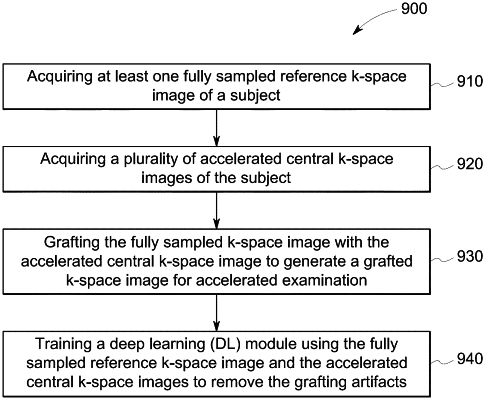| CPC G01R 33/5608 (2013.01) [A61B 5/055 (2013.01); G01R 33/4818 (2013.01); G01R 33/4835 (2013.01); G06F 18/22 (2023.01); G06T 7/0012 (2013.01); G06T 2207/10088 (2013.01); G06T 2207/20081 (2013.01); G06T 2207/20084 (2013.01)] | 21 Claims |

|
1. A method of magnetic resonance imaging (MRI) examination acceleration, the method comprising:
acquiring at least one fully sampled reference k-space data of a subject;
acquiring a plurality of partial k-space data of the subject;
grafting the plurality of partial k-space data with the at least one fully sampled reference k-space data to generate a grafted k-space data for accelerated examination; and
wherein grafting the plurality of partial k-space data with the fully sampled k-space data is carried out before a deep learning (DL) module-based reconstruction of the grafted data.
|